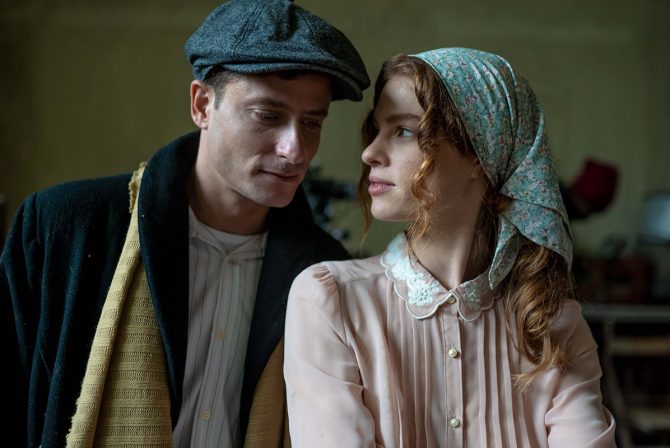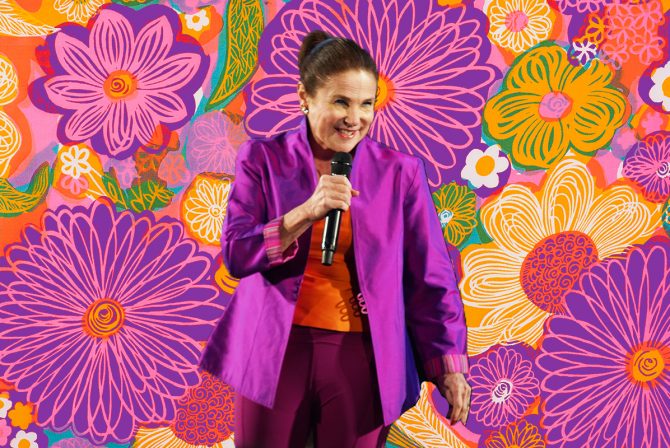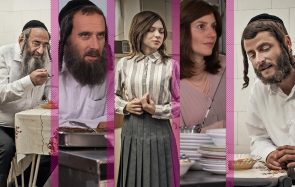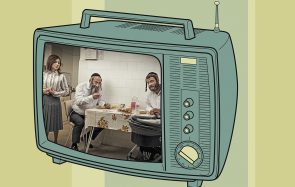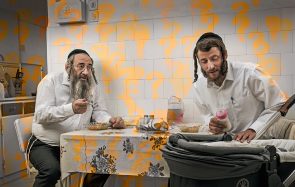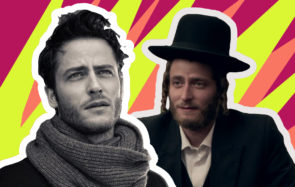每一个,然后,谈话弥补了这些方式长女— the oldest female-assigned child in a family, even if there are older brothers — can be considered its own gender. That’s because, regardless of gender identity, something about the way oldestdaughters是社交的,他们在一个家庭中接受的角色sticks。
“Your gender can change but eldest daughter syndrome is forever,”一个tumblr用户开玩笑。“As an eldest daughter, I sometimes commit the grave sin of having emotions,” anotheruser posted,to which another replied, “‘Conceal, don’t feel, don’t let them know’ had nothing to do withElsa’s powers, it’s just the mantra of eldest daughters.” (Which: ouch.)
As anonbinary personwho doesn’t present androgynously, I spend a lot of time thinking about gender, and how it connects to our identities and the way we move through the world. I’m the oldest of two, and my sister and I have joked —主要是讽刺 - 我在抚养她时发挥了充足的作用。我强烈地认为,成为一个长女儿是自己的经历,因此我没有问题在仍然保持我的非尼华的同时呼唤自己identity。
And yet, when I became a parent last December,I found myself surprisingly uncomfortable with taking on the mantle of “Jewish mother。” Considering that I’m Jewish — and that I’ve long been the “mom friend,” ever since I realized that not every second-grader reminds their friends to bring their sweaters to recess — I did not expect to feel so uncertain about this term.
犹太文化和犹太教一般,依赖于性别语言, concepts, and archetypes to help create community stories and experiences. From Hebrew being an explicitly gendered language, to the differences in gendered obligations to perform certainmitzvot.,to the way we know exactly what someone means when they talk about a “nice Jewish boy,” connecting to Jewish spaces and stories requires an engagement with gender.
这参与不一定是表演或二进制。在犹太空间中的性别二元外,在犹太空间的外面是一个激进的行为,这是一个激进的行为,所以它要求机构和个人估计自己对性别的理解,以及它如何在他们的联系和表达中发挥作用犹太教和犹太惯例。虽然概念的概念menschis gender-neutral, most of the other Jewish cultural stock characters are gendered: thenice Jewish girl,nice Jewish boy, and, of course, theJewish mother.We know her; we love her; we should really call her more often so that she stops making us feel so guilty; we really kind of wish our non-Jewish friends would stop joking about her.
My resistance to the mantle of Jewish motherhood isn’t necessarily in the “Jewish” piece of its history, but in the sheerweightof the gender baggage that comes with taking onmotherhoodat all. I carried my pregnancy, I gave birth (and we’ll be holdingthat在这个孩子的头上直到他的b’nai mitzvah), I nursed and pumped for over a year (we won’t mention that part at the b’nai mitzvah; I’m mean but I’m notcruel)。作为妊娠,出生和饲料的父母拥有如此多的性别语言,毕竟,那些给予出生的传统父母已经打不是被列为“母亲”on birth certificates, and pregnant and feeding trans and nonbinary people often have to specifically seek outtrans-literate birth and lactation professionalsto avoid being misgendered or even refused care. Parenting literature is still largely gendered, and while curated online spaces are beginning to emerge,育儿文化仍然通常假设二进制父母,即使在酷儿关系中也是如此。
Within Jewish spaces, I tend to avoid gendered liturgy and family prayers (‘Eshet Hayil'自一天以来一直在家庭名单。我发现了我的大部分犹太喜悦queer Jewish study和承担祈祷。但由于某种原因,我不能完全让自己完全从犹太母性中辞职
After all, decades ofbad Jewish mother jokesaside, being a Jewish mother is something that has a great deal of cultural and personal meaning. Jewish mothers are keepers of generations of history和传统。Jewish mothers literally carry our stories of trauma and resilience in their DNA. Legacies are kept alive thanks to the literal labor of Jewish mothers. True, there’s a weight to all of that history — but there’s joy and power in it, too. It’s hard to reject that completely. It even almost feels like betrayal.
So I wonder: If “eldest daughter” can be its own experience, no matter how we identify, can “Jewish mother” be an experience that’s independentfrom womanhood? Can I lean into the nurturing, the feeding, the mental rolodex of emotional labor — and, most of all, the ferocious love — without feeling like I’m forcing myself into a box where I don’t fit? Or trying to be part of a group that might not want me?
At the end of the day, my biggest case for claiming motherhood as a nonbinary parent isn’t about me: It’s about what I want to teach my son about motherhood, and how much I want him to see that motherhood can be distinctive from womanhood, from femininity, and from gender. That the physical and emotional labor of people who give birth has value, regardless of whether they’remom或者dad或者mada或者nibi,或非非加入父母拥有的其他任何其他令人难以置信的名称claimed for themselves。我可以成为这个惊人的孩子mom并仍然将我的身份视为非边际酷儿。我可以让犹太人母亲自己,在这个过程中,教我的儿子,他也可以做自己的身份。
Header image by kukurikov/Getty Images


